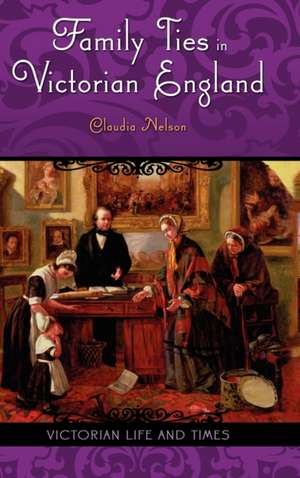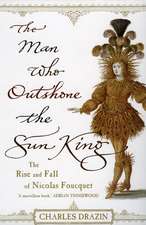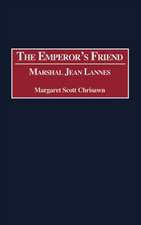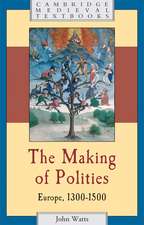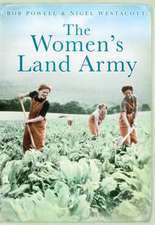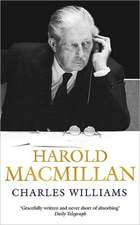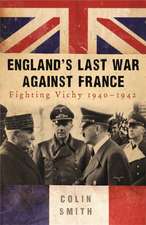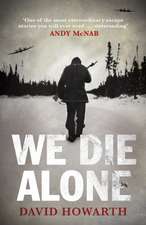Family Ties in Victorian England: Victorian Life and Times
Autor Claudia Nelsonen Limba Engleză Hardback – 27 feb 2007 – vârsta până la 17 ani
Preț: 307.77 lei
Preț vechi: 358.37 lei
-14% Nou
Puncte Express: 462
Preț estimativ în valută:
58.89€ • 61.82$ • 48.88£
58.89€ • 61.82$ • 48.88£
Carte tipărită la comandă
Livrare economică 10-24 aprilie
Preluare comenzi: 021 569.72.76
Specificații
ISBN-13: 9780275986971
ISBN-10: 0275986977
Pagini: 216
Dimensiuni: 156 x 235 x 24 mm
Greutate: 0.49 kg
Editura: Bloomsbury Publishing
Colecția Praeger
Seria Victorian Life and Times
Locul publicării:New York, United States
ISBN-10: 0275986977
Pagini: 216
Dimensiuni: 156 x 235 x 24 mm
Greutate: 0.49 kg
Editura: Bloomsbury Publishing
Colecția Praeger
Seria Victorian Life and Times
Locul publicării:New York, United States
Notă biografică
Claudia Nelson is Professor of English and director of Women's Studies at Texas A&M University. In addition to coediting three anthologies of essays, she is the author of Boys Will Be Girls: The Feminine Ethic and British Children's Fiction, 1857-1917, Invisible Men: Fatherhood in Victorian Periodicals, 1850-1910 , and Little Strangers: Portrayals of Adoption in America, 1850-1929, which won the Children's Literature Association award for the best scholarly book of 2003 in the field of children's studies.
Recenzii
In this well-written, well-researched sociological study of the Victorian family, Nelson links life and literature, showing literary attempts to inculcate virtue as defined by the culture and the individual author. Drawing in court cases and life stories of Victorians both well known and obscure, the author argues that Victorian literature offers a middle-class viewpoint that the working classes are morally inferior and shows the extent to which family, supposed to be the bedrock on which Victorian society was built, nonetheless appeared vulnerable. Employing the extended family, stepparenting, and adoption, Victorian writers could present poor parenting without attacking the assumption that all women are maternal. Not surprisingly, Nelson finds girls' and women's training and roles different from those of men and boys--boys raised to support families and given leisure and freedom, girls removed from school as young as seven (if they were needed to care for siblings) and expected to cater to the needs of brothers throughout life. This fascinating, timely, and eye-opening study adds to Nelson's outstanding Invisible Men: Fatherhood in Victorian Periodicals, 1850-1910. Highly recommended. All readers; all levels.
By including a wide range of experiences, Nelson offers a well-rounded picture of Victorian family life..Nelson is a gifted writer with a firm grasp on both historical and literary issues and, considering the number of topics she had to cover in a brief text, she has done an admirable job of synthesis. This book will be helpful to introductory courses on Victorian literature or history, particularly ones stressing gender issues.
In this volume, Nelson discusses representations of family life in Victorian fiction and non-fiction. Chapters are organized around familial roles, such as husband and wife, mother and father, and children and siblings, in addition to extended, foster, and stepfamilies. She addresses both the historical facts of Victorian domestic life and conflicting images in texts of the time, in an attempt to understand views of family life and domestic duties and how positive and negative ideas served the desires of the country. Some illustrations are included.
Draws on fiction and nonfiction writings in a study contrasting how family life was imagined and experienced during the period.
By including a wide range of experiences, Nelson offers a well-rounded picture of Victorian family life..Nelson is a gifted writer with a firm grasp on both historical and literary issues and, considering the number of topics she had to cover in a brief text, she has done an admirable job of synthesis. This book will be helpful to introductory courses on Victorian literature or history, particularly ones stressing gender issues.
In this volume, Nelson discusses representations of family life in Victorian fiction and non-fiction. Chapters are organized around familial roles, such as husband and wife, mother and father, and children and siblings, in addition to extended, foster, and stepfamilies. She addresses both the historical facts of Victorian domestic life and conflicting images in texts of the time, in an attempt to understand views of family life and domestic duties and how positive and negative ideas served the desires of the country. Some illustrations are included.
Draws on fiction and nonfiction writings in a study contrasting how family life was imagined and experienced during the period.
